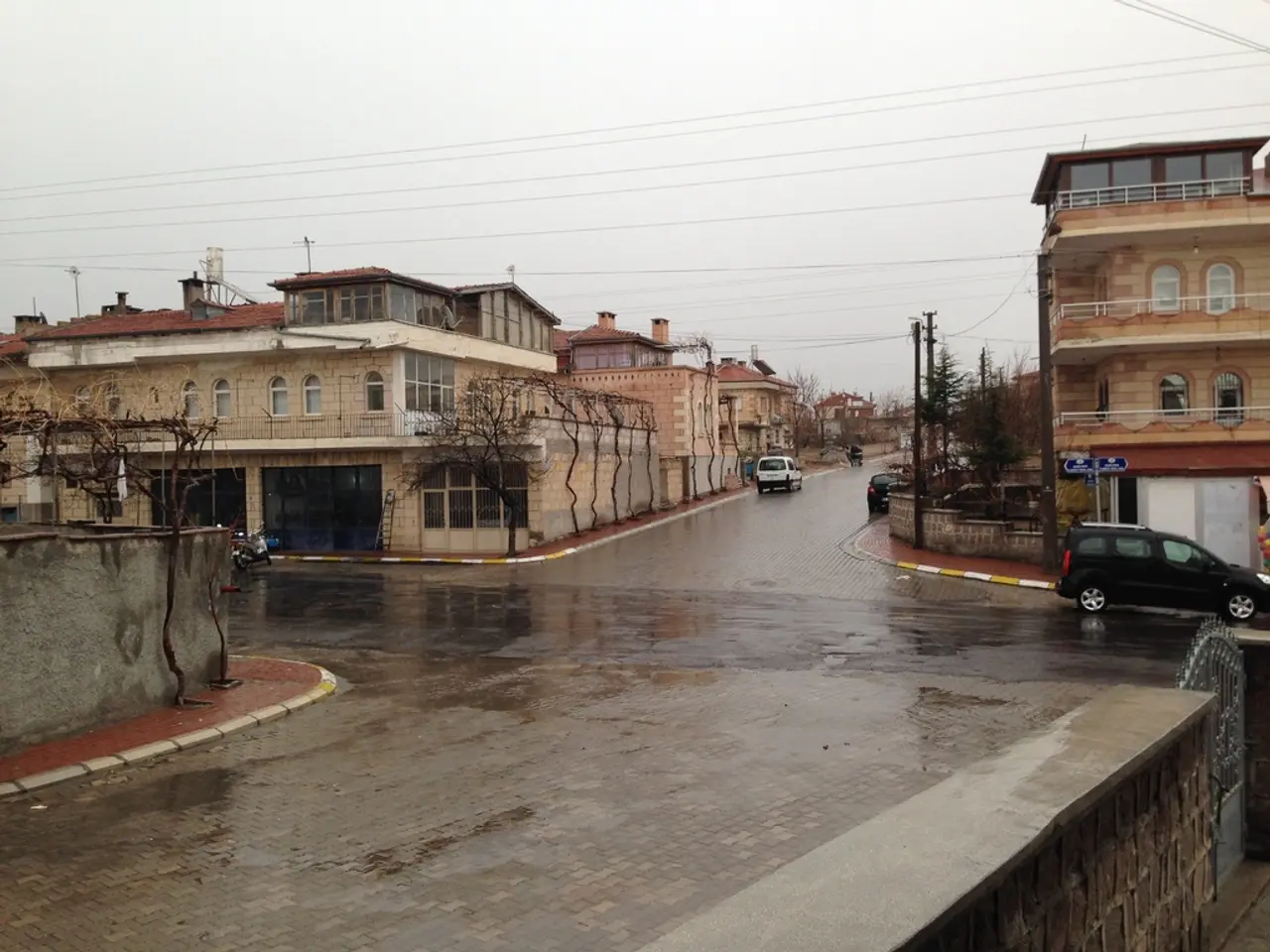Rising Electricity Blues: Homeowners Caught in the Black-Red Dilemma
The conundrum: cheaper gas versus more expensive electricity?
"Pondering Over Cost Differences: Gas Prices Drop While Electricity Rises for Homeowners"
In the promise of reducing electricity taxes for consumers, the government's Black-Red coalition failed to deliver. Instead of lowering electricity costs, it's proposing to subsidize gas prices. The electrical trades are issuing an alarm, concerned about the implications for businesses, industry, and consumers alike. "How should a local craftsman advise when the rules keep changing all the time?", ponders Stefan Ehinger, President of the trade association, in the "Climate Lab" on ntv. "The decision to purchase a heating system is a financial one, and everything else would be unrealistic." Ehinger warns of a potential reversal of the energy transition, as there are already signs of slower progress in the installation of solar systems, home storage systems, and electric car charging points[1].
The concerns of the electrical trades
Ehinger points out that some aspects of the Black-Red's plan create uncertainty, especially the approach to CO2 pricing[1]. The topic has been pushed aside since the COVID-19 pandemic, he notes, and he finds it problematic that the Heating Law has everyone on edge while the industry has been making progress with heat pumps[1].
The high stakes of delayed CO2 pricing
Not wanting to pay more is understandable, but the CO2 price is simply a reflection of the costs that fossil energy carriers impose on nature and the environment. A hasty rush to delay these price increases is misguided, as it leaves private individuals and the industry without a clear plan, and less incentive to invest in carbon-neutral technologies that will ultimately prove more cost-effective[1].
Delayed investment decisions and their repercussions
The "heating hammer" debate has led to many people purchasing gas heating systems, only to face increasing costs due to higher CO2 prices[1]. The solution is not to wait another six years, but to find ways to aid those hardest hit by the cost increase[1]. A failure to address this issue will not resolve the problem, and the lack of investment in alternative heating and mobility technologies will perpetuate the current economic weakness[1].
The need to communicate effectively with the public
As people delay investment decisions, time is wasted, as the switch to sustainable technology is often inevitable. The market is ready, but the public needs clear and honest communication to understand the changes that are coming[1]. Unfortunately, the Union often fails to properly communicate the benefits of carbon pricing and the advantages of sustainable technology[1]. The local craftsman, who enjoys high trust from his customers, is in a unique position to advise well, but finding consistent guidelines in the face of constantly shifting conditions is challenging[1].
Data protection and the future of the electrical trade
Data protection plays an important role in the electrical trade, which generates an annual revenue of around 84 billion euros, with energy transition technologies accounting for 15 percent[2]. The industry is well-positioned to adapt to the digital age, as long as it remains open to new technologies[2].
A call for fair competition
Ehinger supports the free market, and does not want to see a ban on combustion engines or on heaters, although such proposals have been made[2]. He advocates for setting appropriate incentives, such as the CO2 price, to push for a green transition while ensuring fair competition[2].
The impact of subsidies on German households
The federal government is considering using funds from the climate change fund KTF to reduce gas prices[2]. Although this might help households in the short term, it risks undermining the push for electrification which is critical to reducing carbon emissions. As electricity prices remain unaddressed, the switch to the heat pump and other sustainable technologies becomes more difficult[2].
A tough break for early adopters of gas heating systems
The high costs of CO2 pricing may affect those who made the decision to purchase a gas heating system last year the most[2]. Ehinger suggests better communication can help to prepare the public for these economic challenges, rather than leaving them with tough luck[2].
The skills shortage in the electrical industry
Despite the challenges posed by the energy transition, the electrical industry still faces a significant skills shortage, with approximately 70,000 to 80,000 skilled workers missing[2]. The industry is growing and will continue to offer great career opportunities, especially in the clean energy sector.
In Conclusion
The Black-Red's plan to subsidize gas while increasing electricity costs may have unintended consequences for the electrical trades industry, homeowners, and the broader energy transition in Germany. Delaying investment in carbon-neutral technologies and allowing distortions in market signals could hinder the long-term growth of the electrical trades sector and slow down the energy transition. The lack of a clear strategy for addressing CO2 emissions, particularly in the built environment, does little to inspire confidence that Germany is on the path to achieving its climate goals[1][3].
[1] "What bothers you?" ntv.de. [2] "Klima-Labor by ntv". ntv.de. [3] "Germany's energy transition faces setbacks as green subsidies outweigh carbon prices" Reuters.com.
- The electrical trades are expressing concern over the potential implications of the Black-Red's plan for various businesses, industries, and consumers due to its approach to CO2 pricing.
- Ehinger highlights the significance of CO2 pricing, emphasizing that it represents the costs fossil energy carriers impose on nature and the environment.
- A delay in increasing CO2 prices could leave private individuals and the industry without a clear plan and less incentive to invest in carbon-neutral technologies.
- The lack of investment in alternative heating and mobility technologies due to delayed CO2 pricing could perpetuate current economic weakness.





